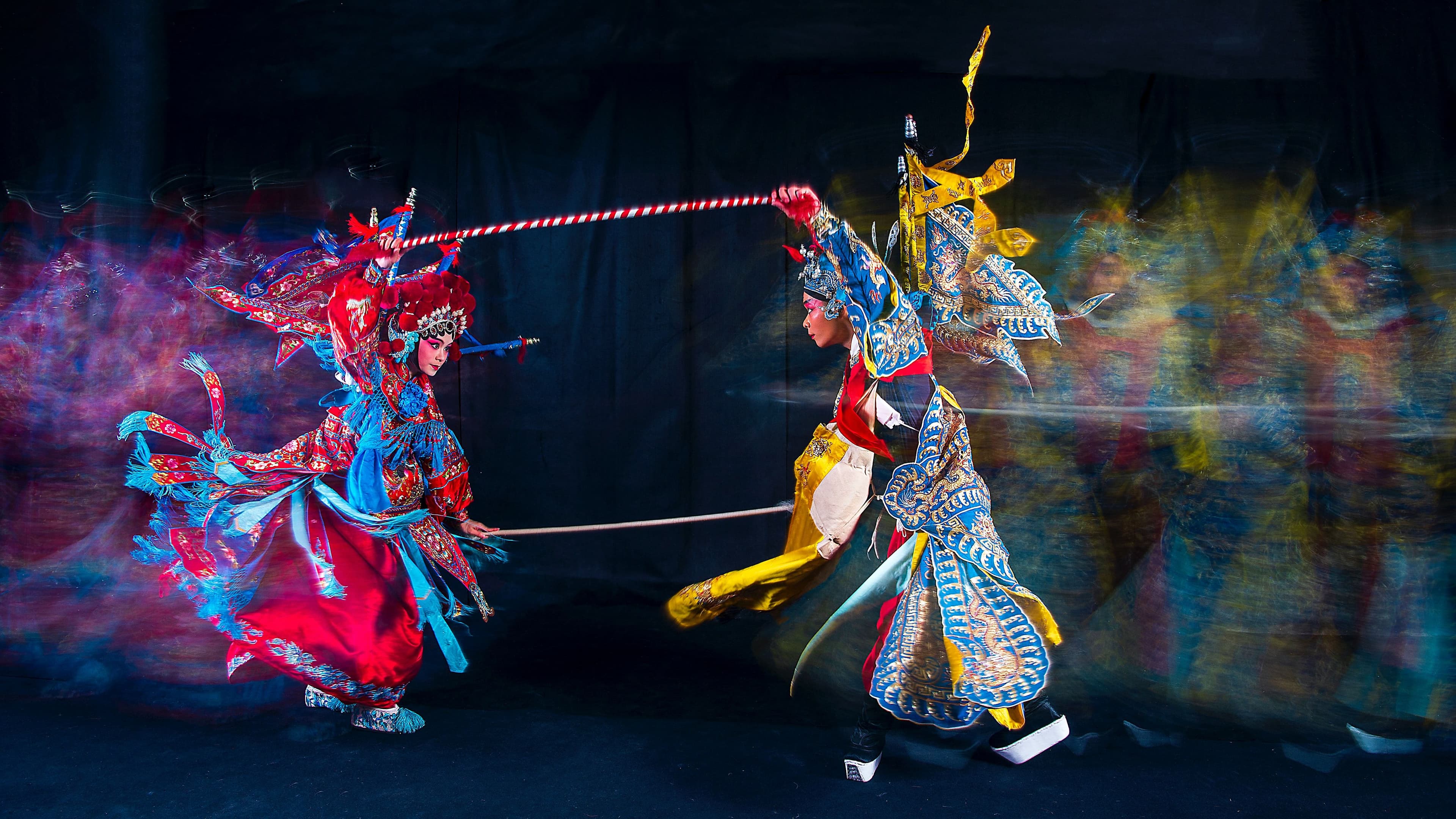
Understanding ISTP Compatibility & Who Matches The “Virtuoso”
In essence, personality type compatibility explains how the 16 personality types relate to one another. Given how guarded ISTPs (Virtuosos) can be, it goes without saying that understanding ISTP compatibility can be incredibly useful if you’re looking to befriend or date someone with this personality type.
In this comprehensive guide to ISTP compatibility and relationships, we’ll explore the best and worst matches for Virtuosos and learn what they’re like in romantic and platonic relationships. Let’s get started!
ISTP Compatibility Chart for Love and Friendships
Here’s a handy ISTP compatibility chart that illustrates how well Virtuosos tend to get along with other personality types:
Very Compatible | Compatible | Somewhat Compatible | Incompatible |
For instance, ISTP compatibility with INTJs is relatively low. While these types share some similarities, their core needs and values may be very different, so they’ll likely need to put quite a bit of work and effort into overcoming their differences.
5 Best Matches for ISTPs
Some of the most compatible personality types with ISTPs are ESTJs, ISFPs, ISTJs, ESTPs, and ESFPs.
Here’s why these pairings work:
#1. ESTJ and ISTP Compatibility
The ESTJ personality type is often considered the best match for ISTPs, as their cognitive functions perfectly complement each other (e.g., ESTJs use extraverted thinking (Te) as their dominant function, whereas ISTPs are dominant introverted thinking (Ti) users).
Both personality types are also resourceful, straightforward, and practical. They also make decisions logically rather than following their hearts. While this means that they tend to see eye to eye on most things in life, ESTJ–ISTP intimate relationships may lack romance due to their rational, pragmatic natures.
Still, ISTPs bring a sense of spontaneity and adventure into the connection, whereas ESTJs do a wonderful job at fostering stability. As such, these personality types often complete each other.
#2. ISFP and ISTP Compatibility
ISFPs and ISTPs share the same auxiliary and tertiary cognitive functions— extraverted sensing (Se) and introverted intuition (Ni). Since they both also possess introverted, sensing, and perceiving traits, ISTPs often feel a sense of kinship with ISFPs. They also tend to like their calm and quiet company.
ISTPs and ISFPs often have similar hobbies. It’s not unusual for them to have an artistic streak and enjoy activities that give them a rush of adrenaline and/or engage their senses. This gives them an opportunity to bond with each other without words, which is something both types can appreciate. Besides, it’s no secret that ISXPs tend to express their feelings through actions.
#3. ISTJ and ISTP Compatibility
ISTJs compatibility with ISTPs is very high, as both of these personality types are practical and share a logical approach to life. They also value their independence and respect other people’s privacy and personal space, which helps them build harmonious relationships based on mutual understanding.
Although both ISTJs and ISTPs tend to be reserved when it comes to communication, they don’t like sweeping things under the rug. When needed, they can openly express their concerns. This, coupled with their strong problem-solving skills, allows both types to get their needs met and prevent problems from escalating.
#4. ESTP and ISTP Compatibility
ESTPs and ISTPs use the same cognitive functions, so they tend to easily understand each other and typically have similar values and life philosophies.
Not only do they prioritize logic when making decisions, but they also like to go with the flow and share a thirst for adventure and novelty. As such, ESTP–ISTP connections tend to be physically and mentally stimulating, bringing a sense of fulfillment to both parties.
However, ESTPs have a stronger need for social interaction than ISTPs, who tend to be more private and reserved. To avoid misunderstandings, both should learn to embrace their differences.
#5. ESFP and ISTP Compatibility
ESFP and ISTP compatibility is very high, as these types are fairly similar but can also learn quite a lot from each other. Their relationships often lead to personal growth, as ESFPs can encourage ISTPs to tap into their feelings and develop their people skills, while ISTPs can help ESFPs see the value in logical and analytical thinking.
Both personality types have adventurous spirits, so they usually create rather exciting relationships packed with fresh experiences.
However, these personality types may clash when making important life decisions, as ISTPs are very logical, whereas ESFPs tend to listen to their hearts first and foremost. Learning to compromise can help them avoid conflict.
3 Worst Matches for ISTPs
Now, let’s look into some of the worst matches for ISTPs—INFPs, INFJs, and ENFPs.
#1. INFP and ISTP Compatibility
ISTP compatibility with INFPs is very low, mainly because these personality types have different goals and values in life.
While INFPs focus on understanding themselves and their place in the world, ISTPs have little to no interest in analyzing their feelings or identifying their core values. They’re much more interested in exploring the external world than their inner workings.
Moreover, INFPs are very sensitive and place a high importance on emotional connection in their friendships and relationships alike. This might make ISTPs very uncomfortable. After all, they like to keep their feelings to themselves and don’t always know how to handle emotions—be they their own or those of other people.
#2. INFJ and ISTP Compatibility
It shouldn’t come as a surprise that ISTP compatibility with INFJs is rather low. Besides a shared preference for introversion, these personality types are nothing alike.
INFJs are future-oriented meaning-seekers who enjoy abstract conversations and care deeply about maintaining social harmony. Meanwhile, ISTPs prefer to focus on the here and now and aren’t much interested in other people’s feelings or that which has no application in practice. So, needless to say, these personalities are bound to run into communication gaps.
Not to mention, ISTPs and INFJs may find it very difficult to connect with each other, as they’re both very private.
#3. ENFP and ISTP Compatibility
ENFPs and ISTPs are both spontaneous and open-minded, but they tend to have very different needs in relationships. This is the main reason why ISTP compatibility with ENFPs is low.
ENFPs thrive on discussing various possibilities, theories, and other abstract concepts. Oftentimes, what they seek in a friend or a romantic partner is a great conversationalist. However, ISTPs are highly action-oriented, and they’d rather engage in hands-on activities with their loved ones than spend time on theoretical discussions.
It also doesn’t help that ENFPs usually crave what ISTPs fear the most—emotional depth and intimacy.
What Is ISTPs’ Communication Style?
Although the ISTP communication style is straightforward, people with this personality type are often very reserved. While they have no trouble addressing problems head-on and expressing their concerns directly, they tend to sit back and observe rather than actively engage in conversations.
ISTPs express their ideas concisely and objectively, focusing on facts and logical arguments rather than their personal insights or feelings. Despite being patient and laid-back, they value effective communication and can become frustrated with discussions that don’t lead to action, practical solutions, and the like.
Ultimately, ISTPs communicate with a specific goal in mind—to find a solution to a problem, figure out a plan of action, etc.—and tend to stay out of conversations that don’t have a clear purpose. Needless to say, they tend to avoid small talk. They are also uncomfortable with emotionally charged conversations due to their highly logical and detached natures.
What Is It Like to Date an ISTP?
Dating an ISTP is often an interesting yet puzzling experience, as these individuals don’t reveal their feelings easily. Even when they do, they may not put them in words.
Physical touch and acts of service tend to be the most common love languages among ISTPs. As such, they’ll likely show how they feel about you through actions—be it volunteering to fix something around your house or subtly touching you.
As reserved as they are, ISTPs make wonderful romantic partners. Although they’re highly independent, they’re also loyal, open-minded, easy-going, and very spontaneous.
What Do ISTPs Need in a Romantic Relationship?
In romantic relationships, ISTPs usually need:
- Autonomy. If you’re wondering who ISTPs are attracted to, the answer is pretty simple—people who give them space and respect their autonomy. Being highly introverted and independent, Virtuosos can’t stand feeling suffocated in a relationship.
- Peace and stability. ISTPs like their relationships to be calm, quiet, and drama-free. They tend to avoid people who are loud and emotionally reactive.
- Adventure. Since ISTPs are spontaneous and action-oriented, they enjoy going on adventurous dates and expanding their horizons with their significant others.
What Are the Challenges of Dating ISTPs?
Here are some challenges of dating ISTPs you should be aware of:
- Emotional detachment. ISTPs aren’t comfortable with emotions, so they may have a hard time attending to their partners’ emotional needs and discussing their feelings.
- Self-contained nature. Private, introverted, and independent, Virtuosos have a strong need to regularly spend time alone. They may also react poorly when they’re being told what to do.
- Directness. ISTPs focus on facts and don’t sugarcoat things, which may hurt some people’s feelings.
What Are ISTPs Like as Friends?
As friends, ISTPs are loyal, tolerant, and easy-going. Due to their carefree attitudes, adventurous nature, and diverse interests, Virtuosos are often well-liked and have a relatively large number of acquaintances. However, getting into their inner circle may not be easy. Being very private, they often have just one or two closest friends.
Connecting with ISTPs on an emotional level may be tricky, as they like to bond with their friends over hands-on activities and shared interests rather than deep, emotional conversations. Oftentimes, they avoid discussing personal topics altogether. It’s also not uncommon for them to struggle to understand and attend to their friends’ emotional needs.
However, this isn’t to say that ISTPs don’t care about their friends. Quite the contrary—they often help them find practical solutions to problems and enjoy going on adventures with them. They simply prefer to have fun, enjoy the moment, and keep their emotions private. As such, ISTPs usually form close friendships with sensing and thinking personality types.
What Kind of Parents Are ISTPs?
ISTP men and women alike tend to make relaxed, fun-loving, and open-minded parents.
They rarely, if ever, impose rules or high expectations on their children. Above all else, they strive to foster independence in their kids, which is why they often give them quite a lot of freedom. More often than not, they let their children do what they please—as long as they stay safe, of course.
ISTP parents often encourage their children to go out, explore the world, and try out new things. They’re often more than happy to join them in hands-on activities—be it playing sports or doing a physics experiment at home—since this allows them to connect with their kids and have fun at the same time.
Being laid-back, ISTPs don’t mind their children making mistakes but expect them to learn from them. However, they might struggle to provide emotional support for their kids, which is an important part of child development. They may not know how to handle and soothe their children’s emotions, so they may need to rely on their significant partners to do it for them.
ISTP Cognitive Functions & Their Impact on Relationships
You’ve probably noticed that cognitive functions play a crucial role in determining ISTP compatibility. Naturally, they also have a strong impact on their interpersonal relationships.
So, let’s see how each ISTP cognitive function affects their relationships with others:
Introverted Thinking (Ti)
Since Ti is the dominant ISTP cognitive function, Virtuosos have a logical approach to all things in life—including relationships. As such, they aren’t likely to fall head over heels for someone without knowing them well. They also need quite a lot of alone time to process their thoughts and pursue their interests.
Extraverted Sensing (Se)
Thanks to their auxiliary Se, ISTPs are grounded in the here and now, making them rather adaptable. Spontaneous and adventurous, they tend to be quite active and feel closest to others when they’re sharing new experiences with them. They are also practical, realistic, and attentive to detail.
Introverted Intuition (Ni)
As a tertiary function, Ni doesn’t have as much impact on ISTP relationships as Ti and Se. However, as they begin to develop this function, Virtuosos become more focused on the future of their relationships and may be more willing to make long-term plans with their loved ones.
Extraverted Feeling (Fe)
Inferior extraverted feeling (Fe) is the culprit behind ISTPs’ emotionally detached nature. Because Fe is their weakest function, Virtuosos often struggle to understand other people’s emotions and thus have a hard time bonding with others emotionally. They may also have trouble processing their emotions in a healthy way, especially when they’re stressed out.
Key Takeaways
And that’s a wrap!
Here are the key things you should remember about ISTP compatibility and relationships:
- ISTPs are more compatible with sensing personality types than intuitive ones, as they’re not only practical and action-oriented but also appreciate these traits in others.
- Due to having very different needs and communication styles, ISTPs are the least compatible with intuitive feelers—ENFPs, INFPs, INFJs, and ENFJs.
- As romantic partners, friends, and parents, ISTPs are adventurous, easy-going, and loyal, but they can be very reserved and emotionally detached.

















